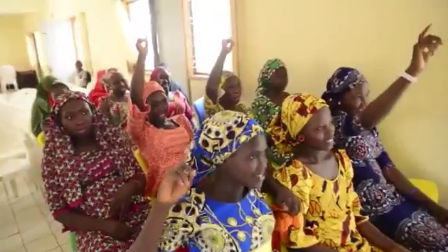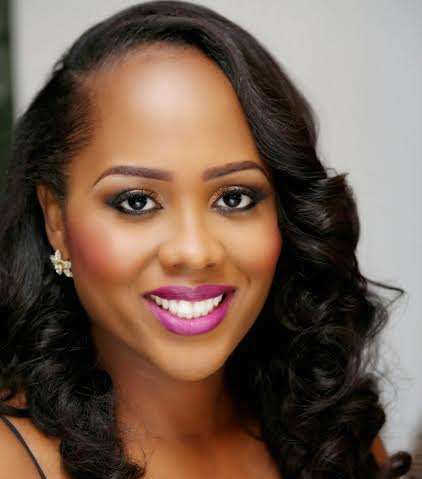President Muhammadu Buhari has approved N164.7 million for the payment of second semester school fess of the freed 106 Chibok girls at the American University of Nigeria (AUN), Yola, Adamawa.
The President’s Senior Special Assistant on Media and Publicity, Malam Garba Shehu, made this known in a statement issued in Abuja on Sunday.
The presidential aide said that the President had expressed satisfaction over the progress so far made in the rehabilitation of the freed Chibok schoolgirls.
According to him, Buhari expressed his feelings while reviewing progress report on the affected girls.
He said that the report was submitted to the President in line with his commitment to personally monitor the rehabilitation and reintegration into society of the freed Chibok girls.
Shehu said the President also assured that the Federal Government would continue to provide full support for their education.
“The President has approved payment of the sum of N164,763,759 million (one hundred and sixty four million, seven hundred and sixty-three naira) for the second semester school fees of the 106 Chibok girls at the American University of Nigeria (AUN), Yola.
“According to the progress report received by the President, the decision to pursue avenues in addition to military action to free the abducted girls is in the resolve to protect the lives of all Nigerians.
“To end the insurgency in the northeast of the country, and to fulfill one of the campaign promises of the President.
“In line with this, the Federal Government entered into negotiations with the Boko Haram terrorist group for the release of the Chibok girls who were kidnapped from their school dormitory on the night of April 14, 2014.
“So far, two batches of 21 and 82 girls have been freed as a result of those negotiations.
“Three additional girls were rescued by the gallant efforts of our armed forces, bringing the total number of freed Chibok girls so far to 106.’’
Shehu noted that as a result of their experiences while in captivity, the freed girls were severely traumatised and afflicted by various ailments and injuries.
He stated that the girls were taken to secured medical centres for attention.
“They also went through debriefing and de-radicalisation by security operatives, after which the girls were handed over to the Federal Ministry of Women Affairs and Social Development.
“The Federal Ministry of Women Affairs and Social Development was assigned the main role in supervising the rehabilitation and reintegration of the girls back into society.
“Long before the girls were released, the Federal Government had established the ‘Chibok Girls Desk’ in the ministry, responsible for acting on matters relating to the abducted Chibok schoolgirls, and serving as a channel of communication between relevant agencies and the parents and relatives of the abducted girls.’’
The media aide said that the ministry of women affairs, in collaboration with the United Nations Fund for Population Activities (UNFPA), UN Women, and other donour agencies, embarked on programmes earmarked to facilitate the rehabilitation and reintegration of the Chibok girls with a nine-month time frame.
According to Shehu, a hostel in the National Centre for Women Development was converted into a suitable shelter, where the girls were kept for the nine-month period.
“The programme, which began in Jan., ended in Sept. 2017. During the period, the 106 girls were given lessons in English, Mathematics, Biology, Agriculture, and Civic Education. In addition, they were trained on ICT and vocational skills.
“Professionals were engaged to provide them with psychosocial therapy and one-on-one counseling to help them overcome post-traumatic stress disorder (PTSD).’’
Shehu revealed that the girls were also provided with religious instruction and comprehensive care by two in-house doctors and two nurses.
He said that periodic visits from the girls’ parents to stimulate family support and reunion were sponsored and organised by the ministry.
“Having successfully achieved the desired goals of the rehabilitation and reintegration programme, with recorded significant improvement in the academic performance of the girls, in September, a final send-off party was organised for the 106 Chibok girls.
“They were subsequently moved to the American University of Nigeria (AUN) in Yola for their foundation studies and continuation of their education.’’
He disclosed that the AUN had successfully established a foundation school for 14 out of the 57 Chibok girls who earlier escaped when the rest of their classmates were taken to the Sambisa forest by Boko Haram in 2014.
The presidential aide observed that the absorption of the 106 girls into the AUN marked the beginning of their integration into the larger Nigerian society, thus fulfilling Buhari’s promise of providing the best education for them.
“Although they have been officially handed over to their parents, the Federal Government will continue to be responsible for the payment of the Chibok girls’ school fees right up to their graduation from school,’’ Shehu said.












